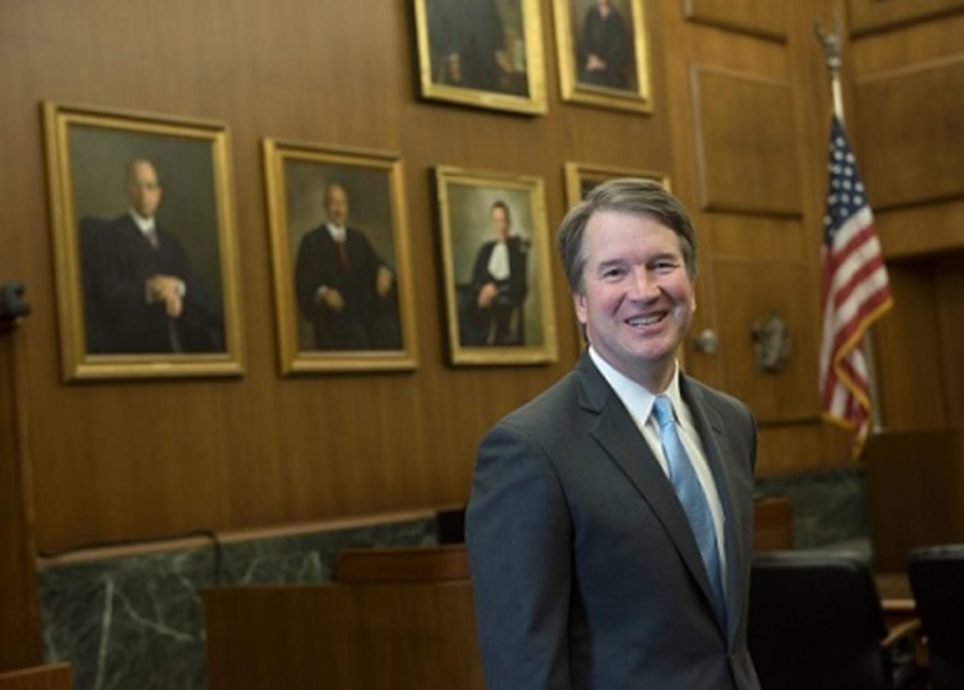And the nominee is . . . Judge Kavanaugh
So it was Judge Kavanaugh. I haven’t studied his opinions, but from what I know of him Kavanaugh is very smart and an originalist. As compared to the other potential nominees, Kavanaugh also had the advantage of many years on the bench. You appear to know what you are getting with Brett Kavanaugh.
One of the obvious problems for confirmation is that Kavanaugh served on Ken Starr’s staff. As Senator Mitch McConnell reportedly told President Trump, Democrats might try to delay the confirmation vote to review many thousands of pages of records from the Starr investigation. In the next couple of months, we should expect to hear quite a lot about Bill Clinton and Monica Lewinsky. Of course, some of Starr’s (and perhaps Kavanaugh’s) behavior regarding Clinton might look different these days to a lot of people who formerly opposed the Independent Counsel.
In looking over my posts over the past years, I realized that I wrote four posts about Judge Kavanaugh – two (here and here) on whether the Constitution guarantees the executive branch prosecutorial discretion and two (here and here) on Kavanaugh’s opinion holding that the removal provisions of the Consumer Protection Financial Agency were unconstitutional. That’s very likely way more than on any other lower court judge. In two of the posts, I largely praised arguments made by Judge Kavanaugh; in two, I criticized his arguments.
I agreed with Kavanaugh’s opinion holding that the Director of the Consumer Financial Protection Bureau could not be made removable only for cause. I wrote:
Of course, Supreme Court precedent has allowed removal restrictions on executive officials since at least Humphrey’s Executor. But as Judge Kavanaugh notes, no significant Supreme Court precedents or long standing practice allows removal restrictions on single headed agencies. Instead, these restrictions have been limited to multi-member commissions. Thus, there is no clear precedent on point.
One could, of course, extend Humphrey’s Executor and other precedents to single headed agencies, but the question is whether the courts are required to do so. It is by no means clear that they are. In Free Enterprise Fund v. Public Company Accounting Oversight Board, Chief Justice Robert’s decision largely followed the type of analysis applied by the D.C. Circuit. Roberts described the removal authority of the President as flowing from the Constitution. He described the permissibility of removal restrictions as coming from precedent. Since the removal restriction in that case was not covered by precedent, the opinion followed the original meaning.
Moreover, the D.C. Circuit’s attempt to distinguish the precedent makes sense. The court noted that the separation of powers operates to place checks on agency officials. Those could be provided by the President (when there were no removal restrictions) or by the other commission members (when there were removal restrictions). Thus, not extending the precedent to a single-headed agency made sense.
In the other posts, I criticized Kavanaugh’s claim that the President enjoys constitutional power over prosecutorial discretion. That is, I believe that the Constitution allows Congress to take away the executive branch’s prosecutorial discretion, although it is hard to do in practice. Here is what I had to say about one of Kavanaugh’s arguments:
One argument, made by Judge Kavanaugh, is that the pardon power supports such discretion:
The President may decline to prosecute certain violators of federal law just as the President may pardon certain violators of federal law. . . . In light of the President’s Article II prosecutorial discretion, Congress may not mandate that the President prosecute a certain kind of offense or offender. The logic behind the pardon power further supports that conclusion. As has been settled since the Founding, the President has absolute authority to issue a pardon at any time after an unlawful act has occurred, even before a charge or trial. So it would make little sense to think that Congress constitutionally could compel the President to prosecute certain offenses or offenders, given that the President has undisputed authority to pardon all such offenders at any time after commission of the offense.
Well, maybe, but I think the argument goes in the other direction. The pardon power and the power of prosecutorial discretion are distinct powers. That the Constitution gives one does not mean it gives another. If the President wants to protect an individual from prosecution, then he must actually exercise the pardon power.
This argument is reinforced by the fact that there was private prosecution of crimes in both England and in the United States at the time of the Constitution. Perhaps the executive could exercise the pardon in those cases, but that does not mean he had the power to exercise prosecutorial discretion.
Based on what I know, Judge Kavanaugh is a smart originalist. That should make him a first rate Justice.
